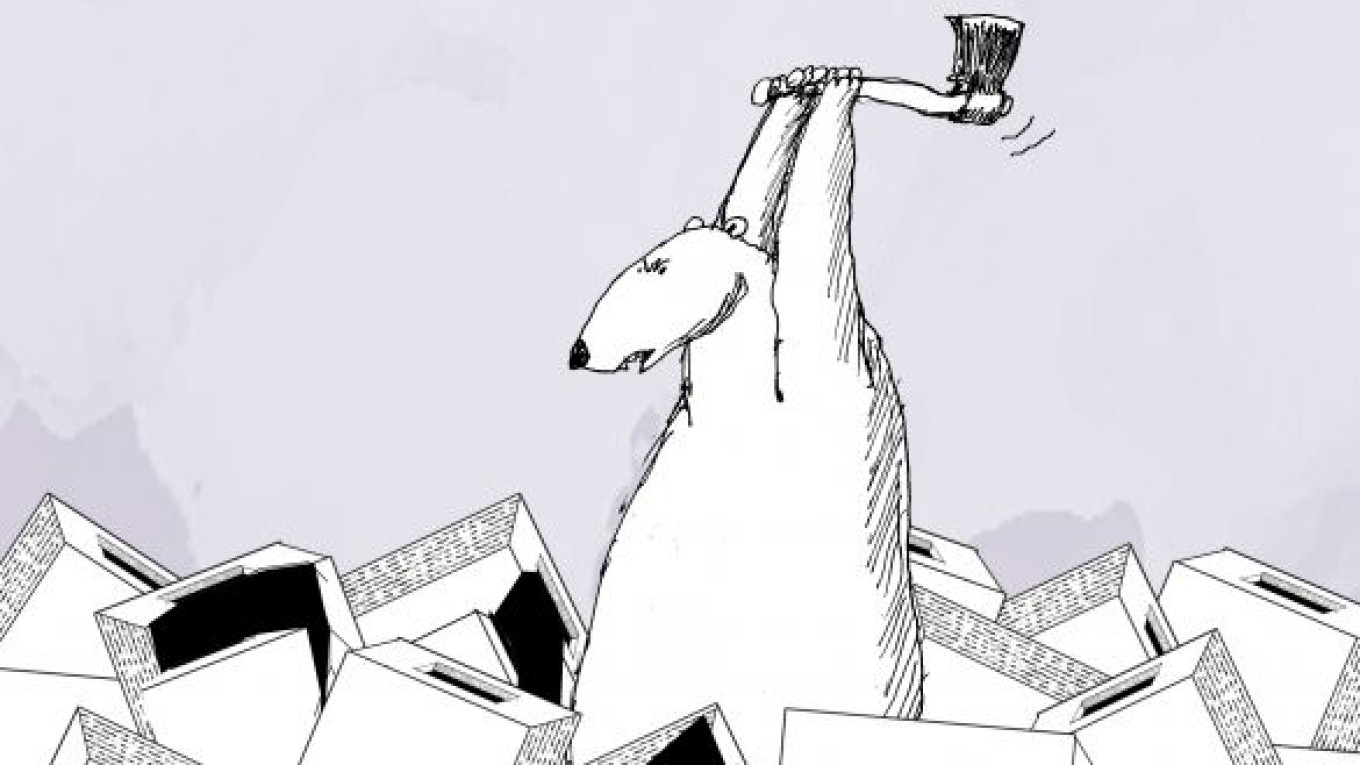In its ongoing attempt to transform the political landscape, the government has been stepping up efforts to replace directly elected mayors with nominees from among State Duma deputies — who themselves are put in office not by voters in the districts they represent but as appointees from party lists.
This process has spread to a number of major cities. The direct election of mayors has been canceled in Nizhny Novgorod, Chelyabinsk, Ulyanovsk and Penza. The vote has also been canceled in cities that never even held direct elections, such as Ufa and Saratov as well as in Kazan, where direct elections had been expected to start. Under discussion now is the cancellation of the elections in Yekaterinburg, Perm and Volgograd, among others. According to various estimates, the direct election of mayors has been canceled in a third to half of all municipalities already.
Governors, who are appointed, and United Russia functionaries share a common interest in this change. Incumbent mayors have even given their support in return for assurances that they can remain in office.
The political juggernaut, first set in motion in 2004 with the cancellation of direct gubernatorial elections, continues its onward progress. The problem, however, is that this approach is no longer effective with the advent of the economic crisis. The state system should be more flexible and resilient during a crisis. Its individual elements should have plenty of autonomy, the joints need to be flexible, and the center of gravity — both political and financial — should be closer to the ground.
The problem is that the Russian political system is plagued by weak institutions and lacks a separation of powers, making it vulnerable to errors in judgment and bad policy. The result is that nobody is left to halt the administrative rampage and to prevent the implementation of decisions and policies that will prove harmful not only to society but to the government itself. That is why many processes in Russia tend to swing, like a pendulum, from one extreme to the other. After losing recent mayoral elections in Irkutsk and Bratsk, United Russia decided that it would be better to eliminate elections altogether. At the same time, leaders never consider the fact that elections serve a number of very important functions for the authorities as well. Elections are a mechanism for direct dialogue between the government and society, a means for determining the proper agenda for government actions and programs. They are a school of participation for ordinary citizens and of competition for the political elite. In addition, elections provide a means for sharing responsibility and letting off steam. By rejecting all of that in favor of maintaining a monopoly on power, the authorities act to the detriment of their own strategic interests, effectively sawing off the branch on which they are sitting.
There was a time when mayors were the Kremlin’s main allies in the struggle against overly independent “regional barons.” Mayors were the most powerful and independent figures of regional political establishments, and it was the mayors who reduced the monopoly of centralized power. Now, when governors have essentially become federal officials and United Russia is everywhere installing its political council secretaries as the speakers of regional legislatures, mayors are the only indigenous center of political influence relying on their own — rather than borrowed — resources. That arrangement gave the system a large margin of stability.
The mayoral model of a “hired city manager selected from among the leading deputies of the city” — one of three municipal reforms that has been offered — should not be confused with similar-sounding models in the West. In this regard, many people will recall the “town mayor/city council chairman” of the Soviet era. The similarity is even more striking when considering that an increasing number of today’s city councils are dominated by a single party — only now it is United Russia in place of the Communist Party.
A case in point is Perm, where the authorities are doggedly trying to force the repeal of direct mayoral elections. Perm residents, known throughout the country for their civic activity, are resisting the change. They have founded a coalition called For Direct Elections in Perm with the participation of many members of civic society, held public hearings and academic conferences on the subject and even created a web site, Vyborpermi.ru. According to a recent survey by the Levada Center, 79 percent of Perm residents want to retain direct mayoral elections.
The events currently unfolding in Perm hold significance far beyond that city and region. If the authorities succeed in canceling direct elections for the mayor in Perm — thereby acting against not only the wishes of the people, but their own long-term interests as well — nothing will stop them from canceling direct mayoral elections everywhere.
Nikolai Petrov is a scholar in residence at the Carnegie Moscow Center.
A Message from The Moscow Times:
Dear readers,
We are facing unprecedented challenges. Russia's Prosecutor General's Office has designated The Moscow Times as an "undesirable" organization, criminalizing our work and putting our staff at risk of prosecution. This follows our earlier unjust labeling as a "foreign agent."
These actions are direct attempts to silence independent journalism in Russia. The authorities claim our work "discredits the decisions of the Russian leadership." We see things differently: we strive to provide accurate, unbiased reporting on Russia.
We, the journalists of The Moscow Times, refuse to be silenced. But to continue our work, we need your help.
Your support, no matter how small, makes a world of difference. If you can, please support us monthly starting from just $2. It's quick to set up, and every contribution makes a significant impact.
By supporting The Moscow Times, you're defending open, independent journalism in the face of repression. Thank you for standing with us.
Remind me later.


